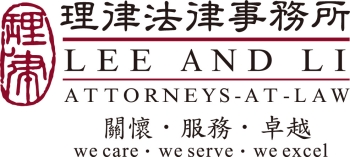Anti-squatting clause
Supreme Administrative Court decision
The Trademark Act does not recognise the right of unregistered trademarks simply by virtue of earlier use. Nonetheless, since the concept of 'use' still plays an important role in maintaining trademark rights, Article 30-I-(12) of the Trademark Act – also known as the 'anti-squatting clause' – provides a degree of protection for unregistered earlier-used trademarks.
According to the anti-squatting clause, trademarks should not be registered if:
- they are identical with or similar to an earlier-used trademark and applied to goods or services that are identical or similar to those for which the earlier-used trademark is applied; and
- the applicant:
- intends to imitate the earlier used trademark; or
- files the application for registration knowing of the existence of the earlier-used trademark due to contractual, regional or business connections, or any other relationship with the proprietor of the earlier used trademark.
However, the kinds of use that are sufficient to establish a claim under the anti-squatting clause remain unclear in practice.
Supreme Administrative Court decision
In a recent administrative litigation case regarding a trademark opposition, the Supreme Administrative Court expressed an important view on the adoption of the anti-squatting clause. Compared to previous decisions, the court took a stricter approach to the interpretation of earlier trademark use. In this case, the claimant:
- asserted the right of an unregistered mark in connection with publishing services; and
- argued that it had used the mark in an early internal annual member meeting.
Regarding the issue of use, the court held that the earlier mark must be used in the "trademark sense" in order to establish a claim under the anti-squatting clause. In other words, claimants asserting unregistered rights under this clause must demonstrate that the unregistered earlier mark was used:
- in the ordinary course of trade; and
- in accordance with common transaction practices.
In addition, the use should prove that consumers rely on the mark to identify source.
The court further specified that, when a claimant asserts unregistered rights in connection with services, the earlier mark must be used in the sale or advertising of a service "for others". If a claimant merely used the earlier mark as a name in handling its own matter, such use cannot be deemed legitimate under the anti-squatting clause.
Therefore, since the mark in this case was used only in internal affairs and the claimant had failed to show that it was used in connection with publishing, the use of the earlier mark was deemed insufficient to establish a claim.
For further information on this topic please contact Ruey-Sen Tsai or Celia Tao at Lee and Li Attorneys at Law by telephone (+886 2 715 3300) or email ([email protected] or [email protected]). The Lee and Li Attorneys at Law website can be accessed at www.leeandli.com.



